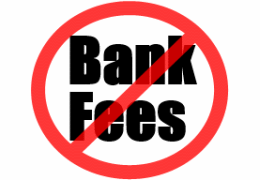How does distributed ledger work (compares to a bank) ?
How does distributed ledger work (compares to a bank) ?
 |
| https://www.wikihow.com/Write-an-Accounting-Ledger |
Their medium
has been clay, wooden tally sticks (that were a fire hazard), stone, papyrus
and paper. Once computers became normalized in the 1980s and '90s, paper
records were digitized, often by manual data entry.
These early
digital ledgers mimicked the cataloguing and accounting of the paper-based
world, and it could be said that digitization has been applied more to the
logistics of paper documents rather than their creation. Paper-based
institutions remain the backbone of our society: money, seals, written
signatures, bills, certificates and the use of double-entry bookkeeping.
Computing
power and breakthroughs in cryptography, along with the discovery and use of
some new and interesting algorithms, have allowed the creation of distributed
ledgers.
In its
simplest form, a distributed ledger is a database held and updated
independently by each participant (or node) in a large network. The
distribution is unique: records are not communicated to various nodes by a
central authority, but are instead independently constructed and held by every
node. That is, every single node on the network processes every transaction,
coming to its own conclusions and then voting on those conclusions to make
certain the majority agree with the conclusions.
Once there is
this consensus, the distributed ledger has been updated, and all nodes maintain
their own identical copy of the ledger. This architecture allows for a new
dexterity as a system of record that goes beyond being a simple database.
Distributed
Ledgers are a dynamic form of media and have properties and capabilities that
go far beyond static paper-based ledgers. They
enable us to formalize and secure new kinds of relationships in the digital
world.
The gist of
these new kinds of relationships is that the cost of trust (heretofore provided
by notaries, lawyers, banks, regulatory compliance officers, governments, etc…)
is avoided by the architecture and qualities of distributed ledgers.
The invention
of distributed ledgers represents a revolution in how information is gathered
and communicated. It applies to both static data (a registry), and dynamic data
(transactions). Distributed ledgers allow users to move beyond the simple
custodianship of a database and divert energy to how we use, manipulate and
extract value from databases — less about maintaining a database, more about
managing a system of record.
Both systems
are currently co-existing alongside each other. Both look like they are here to
stay for the foreseeable future, although the rise of bitcoin is causing banks
to rethink certain areas like transaction fees and how they link between
countries, among other things. The banking system is open to manipulation while
bitcoin is pretty much tamper proof and allows the control of no one individual
or corporation.
The chances are
the adoption of bitcoin or other decentralized currencies will increase due to
its ease of use and being tamper proof. The developers and community are
working on capacity issues which would when the solutions are implemented and
coconscious agreed, solve this hurdle.
In poor
countries with limited access to the internet or areas without electricity such
as many places in rural India for example, there are still hurdles to cross
there. Both bitcoin and the traditional banking system will co-exist for the
foreseeable future, although bitcoin is potentially the start of the fall of
the manipulated banking system and allows a safe place to store savings and
cash away from prying eyes, it is easier to conceal a private key than it is to
hide funds in bank accounts. This could protect people in the event of
malicious divorce cases, among other things provided no link between the two
systems is proven and no laws are broken. In traditional banking your every
action can be audited and picked up by governments, for both good and ill.
Traditional
banks can charge high fees for transactions between countries, while bitcoin
can do it for very little cost, anywhere in the world bar North Korea, at the
same rate.
Use of a
decentralized currency like bitcoin has responsibility, due to the lack of
chargebacks and the privacy it offers over traditional banking, and loss of
private keys or being scammed means no one reimburses you and the coins are
lost forever in the event of a private key loss. Only if you are ready for such
responsibility should you begin with bitcoin, as the banks do take on many of
these responsibilities and reimburse customers usually if they are hacked and
funds stolen
What are the differences between bitcoin and the traditional banking system? Retrieved from https://bitconnect.co/bitcoin-information/16/what-are-the-differences-between-bitcoin-and-the-traditional-banking-system
Bauerle,N. What is a Distributed Ledger? Retrieved from https://www.coindesk.com/information/what-is-a-distributed-ledger/
Floyd,D. (2016, October 17). What is a Distributed Ledger? Retrieved from https://www.investopedia.com/news/what-distributed-ledger/







Comments
Post a Comment